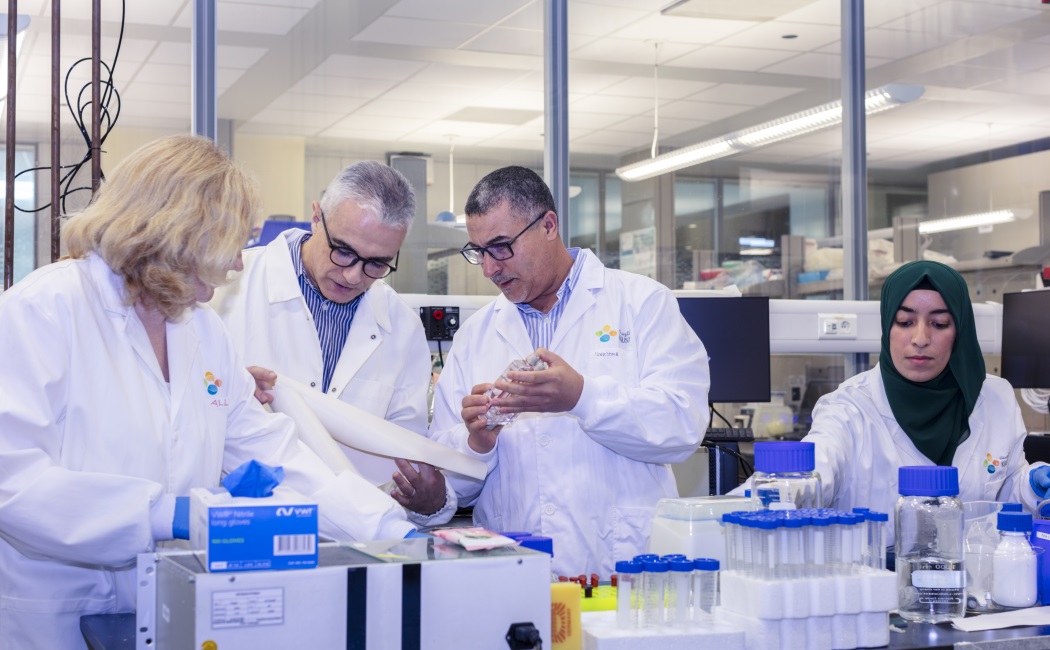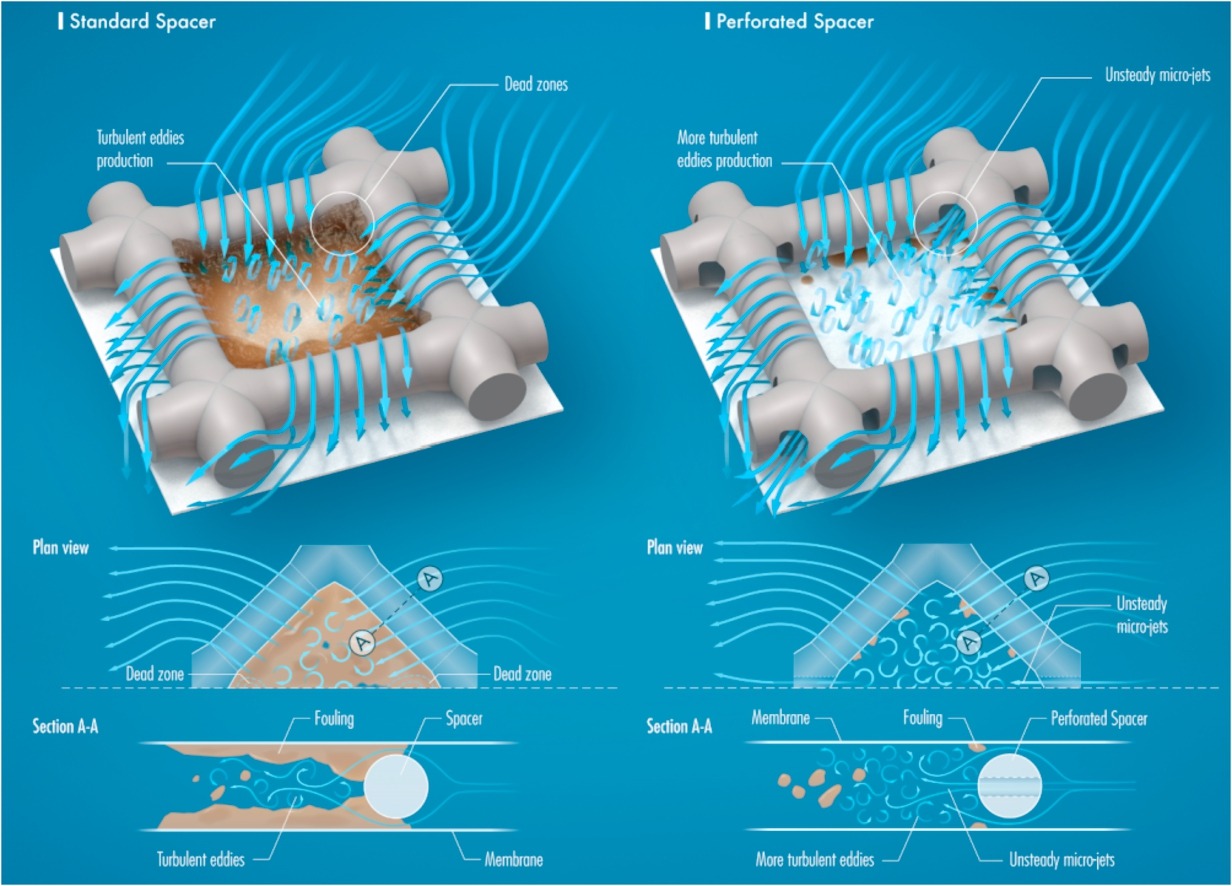

We emphasize the improvement of desalination technologies through continuous innovation in process design and digitalization. Additionally, our group is actively involved in the development of pre and post-treatment processes to ensure the production of high-quality desalinated water.

The advancement of desalination technologies is crucial in addressing global water scarcity. Reverse osmosis (RO) remains a leading technology due to its effectiveness in removing a variety of contaminants. However, challenges such as membrane fouling, energy consumption, and operational costs necessitate continuous innovation in process design and digitalization. Our research group focuses on advancing these technologies through two key strategies: Spacer design optimization and AI-driven approaches for membrane (bio)fouling control.
Spacer Design Impact: Spacer design is crucial in managing the flow dynamics within the membrane modules. Optimizing spacer geometry can enhance turbulence, reduce concentration polarization, and mitigate fouling by promoting more uniform distribution of flow across the membrane surface. Our studies have shown that specific spacer configurations can significantly improve mass transfer rates and reduce pressure drop, leading to more efficient desalination processes.
AI-Driven Approach for Membrane Fouling Control:
Predictive Analytics: Artificial Intelligence (AI) and machine learning algorithms are employed to predict (bio)fouling events by analyzing historical and real-time operational data. These predictive models enable preemptive actions to be taken before significant fouling occurs, thus maintaining operational efficiency.
Automated Monitoring and Control: AI technologies are also integrated into automated monitoring systems that provide continuous analysis of key parameters such as feed water quality, flow rates, and differential pressure. This continuous data flow allows for dynamic adjustments in operation, optimizing the desalination process and reducing the need for manual intervention.
Biofouling Detection and Mitigation: Advanced AI models can detect biofouling at early stages through pattern recognition and anomaly detection in sensor data. When coupled with control systems, these AI models can adjust chemical dosing or cleaning cycles to effectively manage and mitigate biofouling.
Our research seeks to develop innovative solutions to reduce energy consumption and operational costs while increasing the lifespan and performance of membrane systems. By applying these advanced techniques, we have successfully addressed several challenges in fouling management, leading to improvements in water quality and reliability, which contribute to global water security. These approaches not only tackle existing issues but also sets the stage for future innovations in water treatment technologies.
